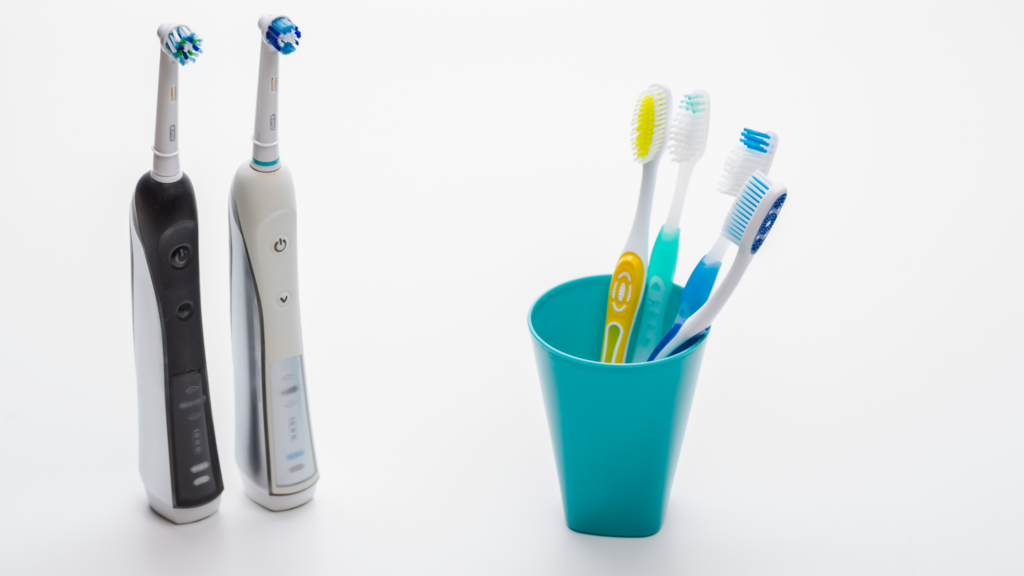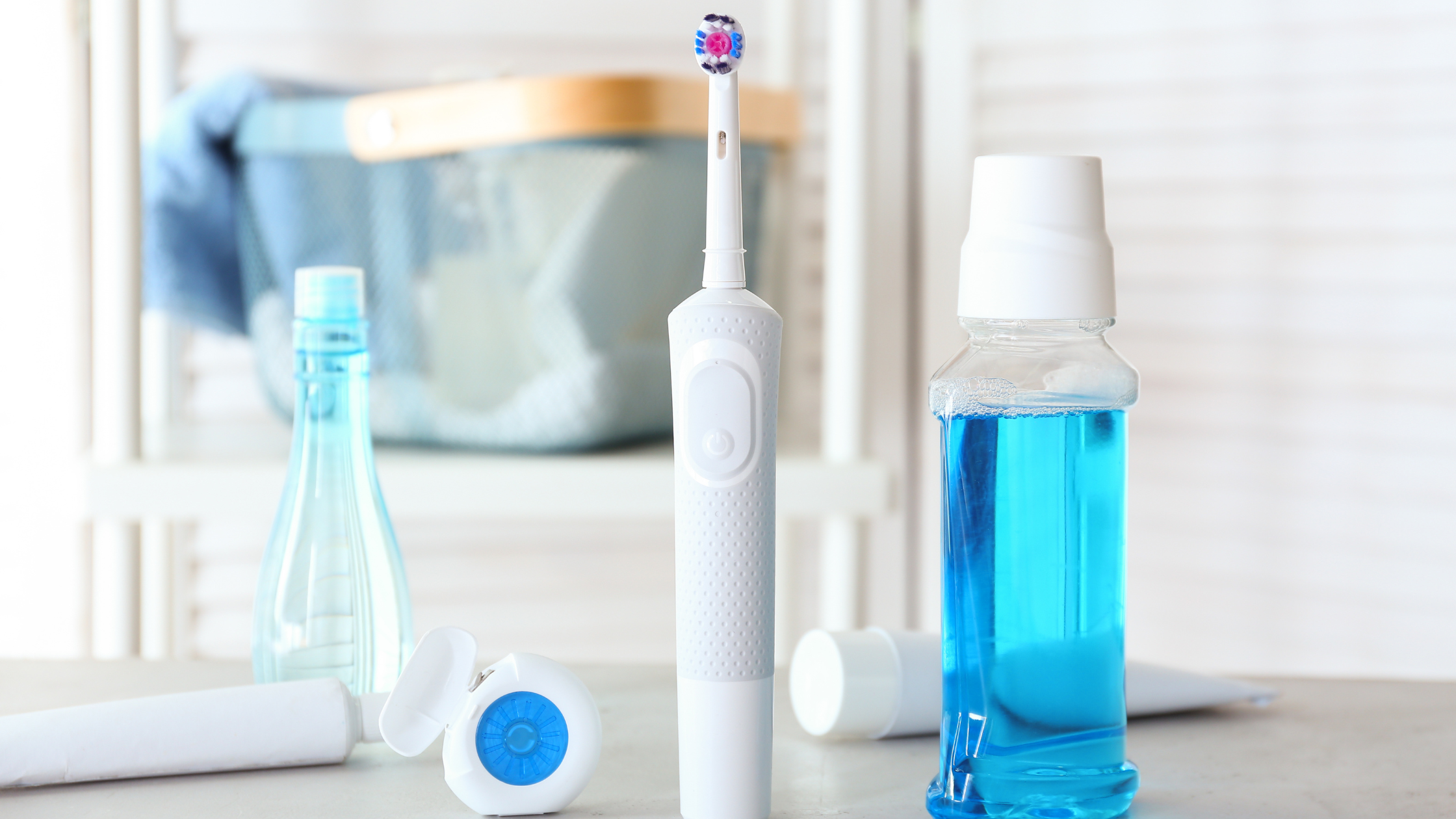A healthy oral microbiome is the foundation of a vibrant smile and strong overall health. This intricate ecosystem of bacteria and microorganisms works tirelessly to protect against oral diseases, aid digestion, and support your immune system. Yet, maintaining this delicate balance hinges on one thing: your daily oral hygiene routine.
Neglecting oral hygiene allows harmful bacteria to flourish, leading to issues like cavities, gum disease, and even systemic conditions such as cardiovascular disease. The good news? With a few small changes to your daily habits, you can promote microbial balance, prevent oral health problems, and enhance your overall wellness.
In this article, we’ll uncover the top oral hygiene practices to support a balanced microbiome, avoid common mistakes, and build a routine that evolves with you at every life stage. Ready to transform your oral health? Let’s get started!
Understanding the Connection Between Oral Hygiene and a Healthy Oral Microbiome
A healthy oral microbiome is essential for strong teeth, healthy gums, and overall well-being. This ecosystem of microorganisms thrives on balance, which can be maintained with consistent oral hygiene practices. Proper care helps control harmful bacteria, supporting a thriving microbial community that protects your mouth and body.
How Proper Oral Hygiene Maintains Microbial Balance
- Daily Routines Matter: Brushing and flossing remove plaque and food debris, preventing harmful bacteria like Streptococcus mutans from creating acids that erode enamel and cause cavities.
- Saliva’s Role: Saliva production, stimulated by hydration and good hygiene, washes away bacteria and neutralizes pH levels, creating a favorable environment for beneficial microbes.
- Comprehensive Cleaning: Tongue cleaning and gentle rinsing reduce bad-breath bacteria and support microbial diversity.

The Risks of Poor Oral Hygiene
- Neglecting oral hygiene disrupts microbial balance, allowing harmful bacteria to dominate. This imbalance can lead to issues such as cavities, gum disease, and bad breath.
- Beyond the Mouth: An imbalanced microbiome can allow bacteria to enter the bloodstream, increasing risks for systemic health problems, including cardiovascular disease, diabetes, and inflammation-related conditions.
By maintaining a consistent oral hygiene routine, you can nurture your oral microbiome, prevent microbial imbalances, and support overall health. Small daily habits have a big impact—start today to build a thriving microbiome.
Top Daily Oral Hygiene Habits to Support Your Oral Microbiome
Maintaining a healthy oral microbiome starts with consistent daily habits. These practices protect against harmful bacteria while nurturing beneficial microbes, creating a balanced environment for long-term oral and systemic health. Here are the top oral hygiene habits to support your microbiome:
Brushing for Balance
- Use the Right Technique: Brush twice daily with a soft-bristled toothbrush, angling it at 45 degrees toward the gumline to gently remove plaque without harming your gums.
- Choose Fluoride Toothpaste: Fluoride helps strengthen enamel, protecting it from acid-producing bacteria.
- Timing Matters: Brush for at least two minutes to ensure thorough cleaning of all surfaces.
Flossing for Deeper Cleaning
- Remove Hidden Debris: Flossing reaches between teeth where toothbrushes can’t, preventing harmful bacteria from accumulating and disrupting the microbial balance.
- Consistency Is Key: Floss at least once a day to reduce the risk of cavities and gum disease.
- Don’t Skip Tongue Cleaning
- Reduce Bad Breath: Use a tongue scraper or toothbrush to clean your tongue daily, removing odor-causing bacteria that can thrive on its surface.
- Promote Microbial Diversity: Tongue cleaning helps maintain a balanced environment, reducing harmful microbes and supporting beneficial bacteria.
Choose the Right Mouthwash
- Go Alcohol-Free: Use an alcohol-free mouthwash to avoid drying out your mouth, which can disrupt the oral microbiome.
- Avoid Overuse: Limit antibacterial rinses, as they can eliminate both harmful and beneficial bacteria.
Stay Hydrated
- Boost Saliva Production: Drink plenty of water throughout the day to support saliva flow, which washes away debris and maintains the mouth’s pH balance.
- Rinse After Meals: Swishing with water after eating helps neutralize acids and remove food particles.
By incorporating these simple habits into your daily routine, you can foster a thriving oral microbiome. Consistency is key—these small steps help ensure your oral microbiome remains balanced, benefiting your teeth, gums, and overall health.
Advanced Oral Hygiene Techniques for Better Microbial Balance
For those looking to optimize their oral hygiene routine, advanced techniques can provide an extra layer of support for maintaining a healthy oral microbiome. These strategies focus on tools, habits, and dietary practices that enhance microbial balance and oral health.

Upgrade Your Tools
- Electric vs. Manual Toothbrush: Electric toothbrushes can be more effective at removing plaque and reducing gum inflammation. Choose one with a soft head to prevent irritation and protect beneficial bacteria.
- Interdental Brushes: For individuals with larger gaps between teeth, interdental brushes offer a more thorough clean than floss alone, preventing bacterial buildup.
Support Saliva Production
- Stay Hydrated: Drinking plenty of water is essential for saliva production, which naturally cleanses the mouth and balances pH levels.
- Chew Sugar-Free Gum: Chewing gum that contains xylitol stimulates saliva flow and inhibits the growth of harmful bacteria like Streptococcus mutans.
Incorporate Microbiome-Friendly Foods
- Crunchy, Fiber-Rich Foods: Apples, carrots, and celery act as natural toothbrushes, scrubbing teeth and stimulating saliva.
- Fermented Foods: Incorporating foods like miso, sauerkraut, or kimchi introduces beneficial bacteria that support microbial diversity.
Use Specialty Dental Products
- Probiotic Toothpaste or Mouthwash: Look for products designed to introduce or maintain beneficial bacteria in the oral microbiome.
- pH Balancing Rinses: These rinses neutralize acidity in the mouth, reducing conditions that promote harmful bacterial growth.
Advanced techniques not only help protect against cavities and gum disease but also help cultivate a balanced microbial ecosystem in your mouth. These methods complement basic oral hygiene practices, offering additional protection and long-term health benefits for your teeth, gums, and microbiome.
Mistakes That Harm Your Oral Microbiome—and How to Avoid Them
Even with the best intentions, certain habits can disrupt the balance of your oral microbiome, leading to dental and systemic health issues. By recognizing these common mistakes, you can make adjustments to protect and support your oral microbial health.
Overbrushing
- The Mistake: Brushing too hard or using a toothbrush with stiff bristles can damage enamel and irritate gums, creating conditions that favor harmful bacterial growth.
- How to Avoid It: Use a soft-bristled toothbrush and gentle, circular motions when brushing. Focus on thorough cleaning rather than pressure.
Overusing Antibacterial Products
- The Mistake: Excessive use of antibacterial mouthwash or toothpaste can disrupt microbial diversity, eliminating both harmful and beneficial bacteria.
- How to Avoid It: Limit the use of antibacterial products and opt for alcohol-free, microbiome-friendly alternatives. Save stronger antibacterial solutions for short-term use as recommended by your dentist.
Skipping Tongue Cleaning
- The Mistake: Neglecting the tongue allows odor-causing bacteria to thrive, contributing to bad breath and microbial imbalance.
- How to Avoid It: Incorporate daily tongue cleaning into your routine using a scraper or toothbrush.
Neglecting Regular Dental Visits
- The Mistake: Skipping routine dental checkups can allow plaque buildup and minor issues to escalate into more serious problems that affect your microbiome.
- How to Avoid It: Schedule biannual dental cleanings and exams to monitor oral health and maintain microbial balance.
By avoiding these common mistakes and adopting a mindful oral care routine, you can foster a healthier oral microbiome, protecting your teeth, gums, and overall health. Small adjustments can make a significant impact on maintaining microbial harmony in your mouth.
How Oral Hygiene Practices Protect Your Systemic Health
Your oral hygiene routine doesn’t just affect your teeth and gums—it plays a vital role in safeguarding your overall health. The oral microbiome serves as a critical connection between the mouth and the rest of the body. When properly maintained through good hygiene, this ecosystem protects against systemic health issues.
Preventing Systemic Inflammation
- The Risk of Dysbiosis: Poor oral hygiene can lead to microbial imbalances (dysbiosis), allowing harmful bacteria to flourish. These bacteria can travel through the bloodstream, triggering systemic inflammation that contributes to conditions such as cardiovascular disease and diabetes.
- The Protective Role of Hygiene: Regular brushing, flossing, and tongue cleaning remove plaque and food particles, reducing harmful bacterial growth and preventing inflammation from spreading beyond the mouth.
Boosting Immune Function
- Oral Microbiome as the First Line of Defense: A balanced oral microbiome supports the immune system by keeping harmful bacteria in check and promoting a healthy oral environment.
- Hygiene Habits Matter: Proper oral care helps the microbiome function effectively, reducing the burden on your immune system and lowering your risk of infections.
Reducing Risks for Chronic Diseases
- Links to Systemic Health: Research has shown that conditions like heart disease, diabetes, Alzheimer’s disease, and others are linked to poor oral health.
- Prevention Through Hygiene: Consistent oral care minimizes the risk of gum disease and its associated inflammation, protecting against these chronic illnesses.
By maintaining a thorough oral hygiene routine, you support not only a balanced oral microbiome but also your systemic health. Small daily actions, such as brushing, flossing, and staying hydrated, help create a ripple effect that benefits your entire body.
Oral Hygiene Routines for Every Life Stage: Kids, Teens, Adults, and Seniors
Maintaining a healthy oral microbiome requires age-specific hygiene practices tailored to the unique needs of each life stage. By adopting the right habits at every age, you can support your oral microbiome and overall health.

For Kids
- Establish Early Habits: Start brushing as soon as the first tooth appears using a soft-bristled toothbrush and a small amount of fluoride toothpaste. Teach children to brush twice daily for two minutes.
- Parental Involvement: Young children need supervision to ensure they brush properly. Flossing should begin when two teeth touch.
- Limit Sugar: Minimize sugary snacks and drinks, which feed harmful bacteria. Encourage water as the primary beverage.
For Teens
- Address Hormonal Changes: Hormonal fluctuations during puberty can increase gum sensitivity and inflammation. Regular brushing, flossing, and mouthwash use can help manage these changes.
- Dietary Awareness: Teens often consume more sugary and processed foods. Emphasize the importance of reducing sugar and choosing nutrient-rich snacks like fruits and vegetables.
- Encourage Consistency: Busy schedules can lead to neglect of oral hygiene. Help teens prioritize brushing twice daily and flossing nightly.
For Adults
- Prevent Stress-Related Issues: Stress can weaken the immune system and impact oral health. Incorporate stress-reducing activities like yoga or meditation to support microbial balance.
- Focus on Maintenance: Adults should brush twice daily with fluoride toothpaste, floss daily, and use a tongue cleaner to maintain a balanced microbiome.
- Schedule Regular Checkups: Dental visits every six months ensure that potential issues are addressed early.
For Seniors
- Combat Dry Mouth: Aging and medications can reduce saliva production, increasing the risk of oral infections. Stay hydrated and use saliva substitutes or sugar-free gum to stimulate saliva flow.
- Denture Care: Clean dentures daily to prevent bacterial and fungal growth, and ensure a proer fit to avoid irritation.
- Regular Monitoring: Seniors should maintain dental visits to monitor for gum disease, dry mouth, and other age-related concerns.
By tailoring your oral hygiene routine to each life stage, you can support a thriving oral microbiome and prevent health issues before they arise. These targeted practices ensure oral and systemic wellness throughout life.
The Importance of Lifelong Oral Care for a Balanced Oral Microbiome
Caring for your oral microbiome is a lifelong commitment that goes beyond preserving your smile—it’s essential for protecting your overall health. At every stage of life, consistent oral hygiene practices help maintain the delicate balance of beneficial bacteria, reducing the risk of oral and systemic health problems.
Connecting Oral and Systemic Health
The oral microbiome acts as a gateway to your body, influencing systems like the heart, brain, and immune function. Neglecting oral care can lead to microbial imbalances (dysbiosis), allowing harmful bacteria to travel to other parts of the body. This increases the risk of conditions such as cardiovascular disease, diabetes, and Alzheimer’s. By prioritizing oral health, you safeguard not only your mouth but your entire body.
A Lifelong Commitment
From the first tooth in childhood to managing dry mouth in later years, every stage of life requires specific attention to oral hygiene. Establishing early habits like brushing, flossing, and regular dental visits lays the foundation for a thriving oral microbiome. As you age, adapting your routine to include hydration, stress management, and age-appropriate tools ensures continued microbial balance and resilience.
By embracing lifelong oral care, you support a balanced oral microbiome that protects your teeth, gums, and overall wellness. The small, consistent habits you practice today will have a lasting impact on your health for years to come.
Conclusion
Maintaining a healthy oral microbiome is a cornerstone of both oral and systemic health. Throughout life, the daily habits you adopt—like brushing, flossing, and staying hydrated—play a crucial role in supporting microbial balance and preventing issues like cavities, gum disease, and bad breath. Beyond the mouth, a balanced oral microbiome helps reduce systemic inflammation, strengthen your immune system, and lower the risk of chronic conditions such as cardiovascular disease and diabetes.
Oral hygiene is not a one-size-fits-all approach. Tailoring your routine to each life stage ensures that your oral microbiome receives the care it needs to thrive. From instilling good habits in children to addressing hormonal changes in teens, managing stress in adults, and combating dry mouth in seniors, consistent oral care evolves with you.
The small, consistent actions you take today—like proper brushing, tongue cleaning, and regular dental checkups—lay the foundation for lifelong oral and systemic wellness. By prioritizing these practices, you’re investing in a healthier, more balanced future for your smile and your body. Explore more articles in this series for additional tips and insights into optimizing your oral microbiome and overall health.

